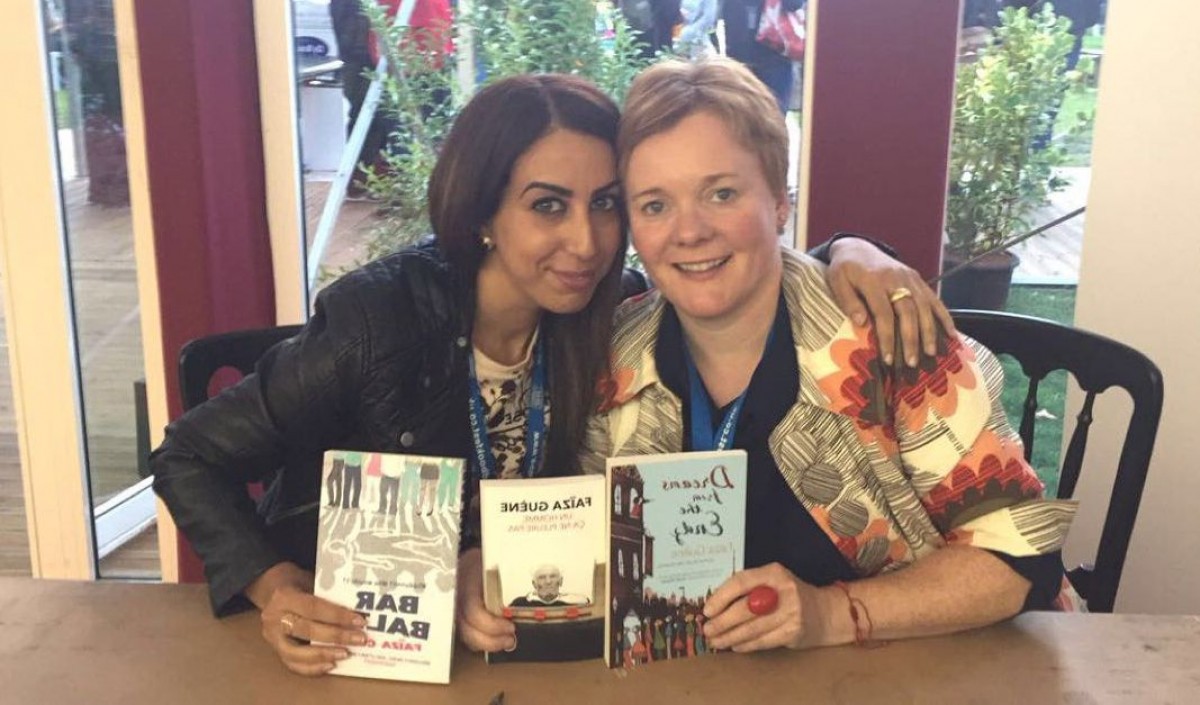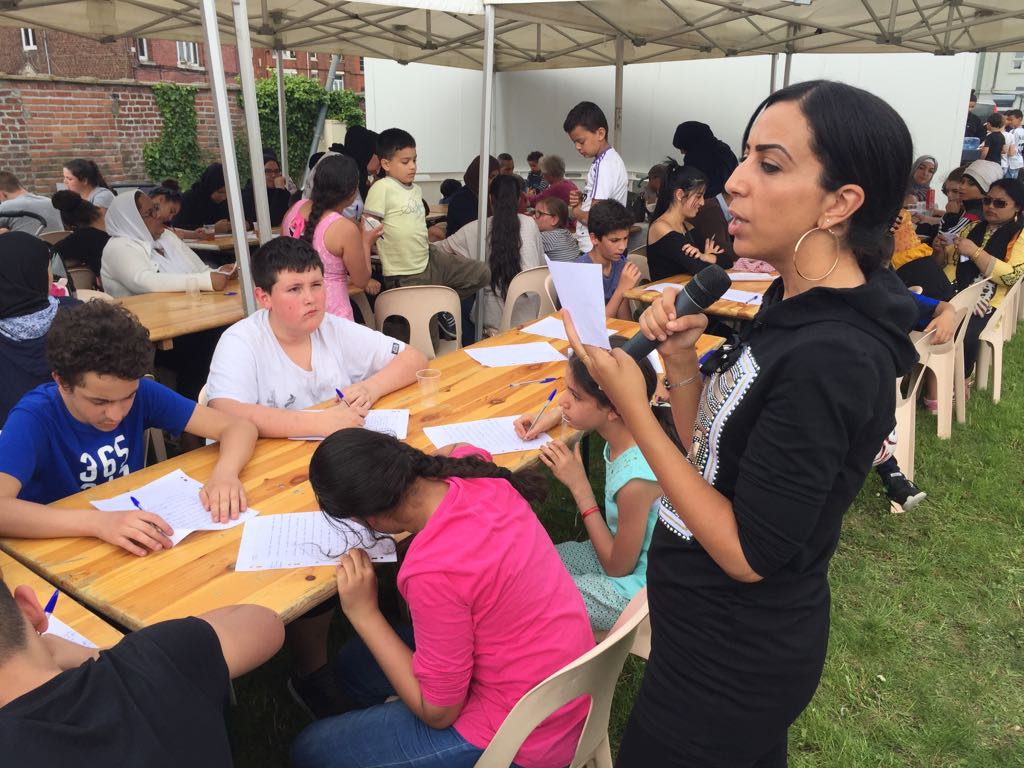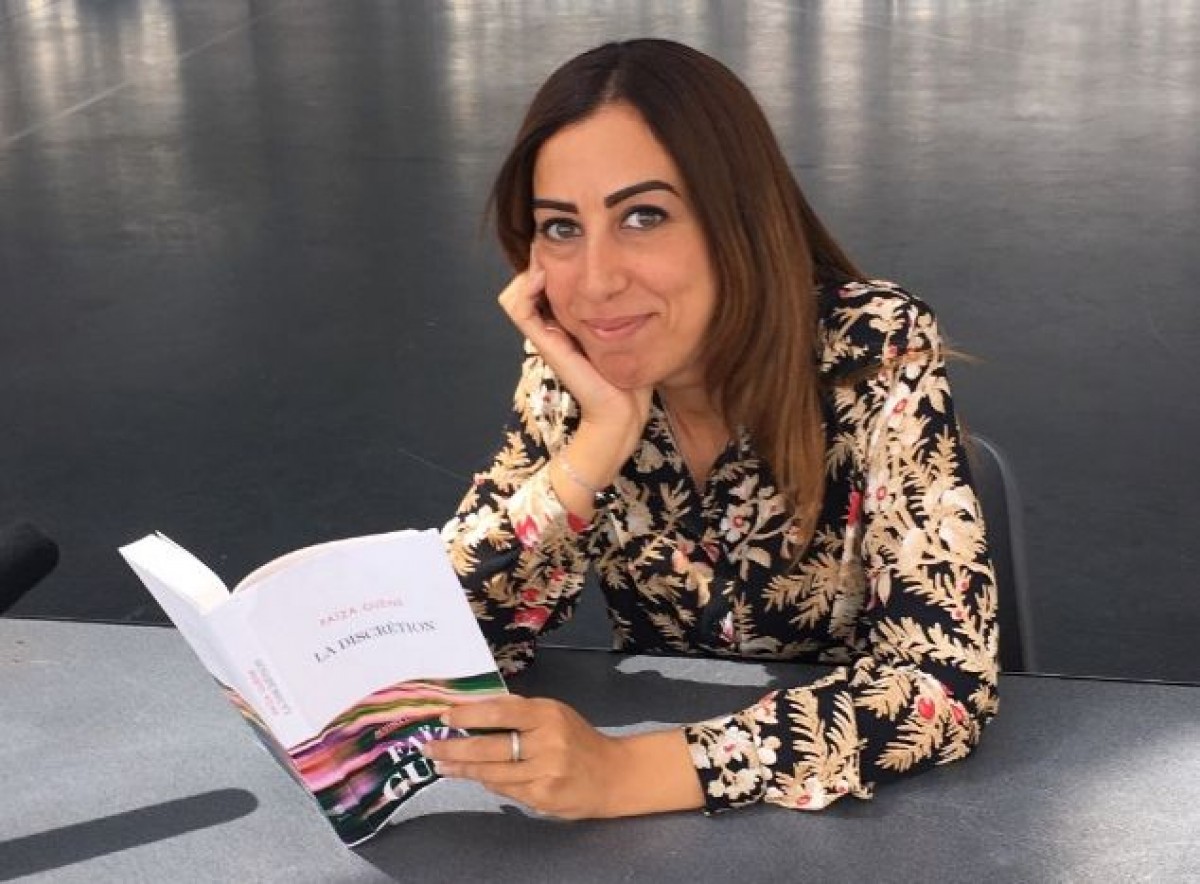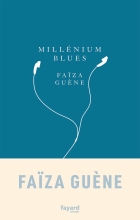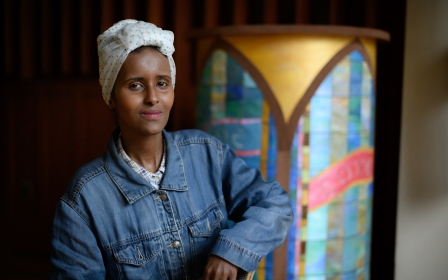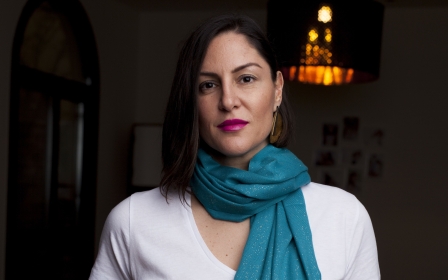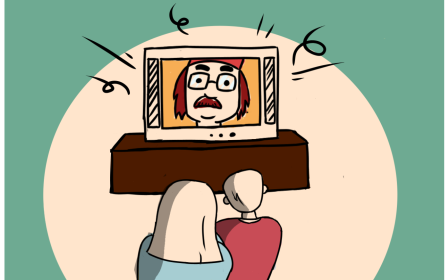The fire this time: French novelist Faiza Guene on writing, anger and dreams of '98
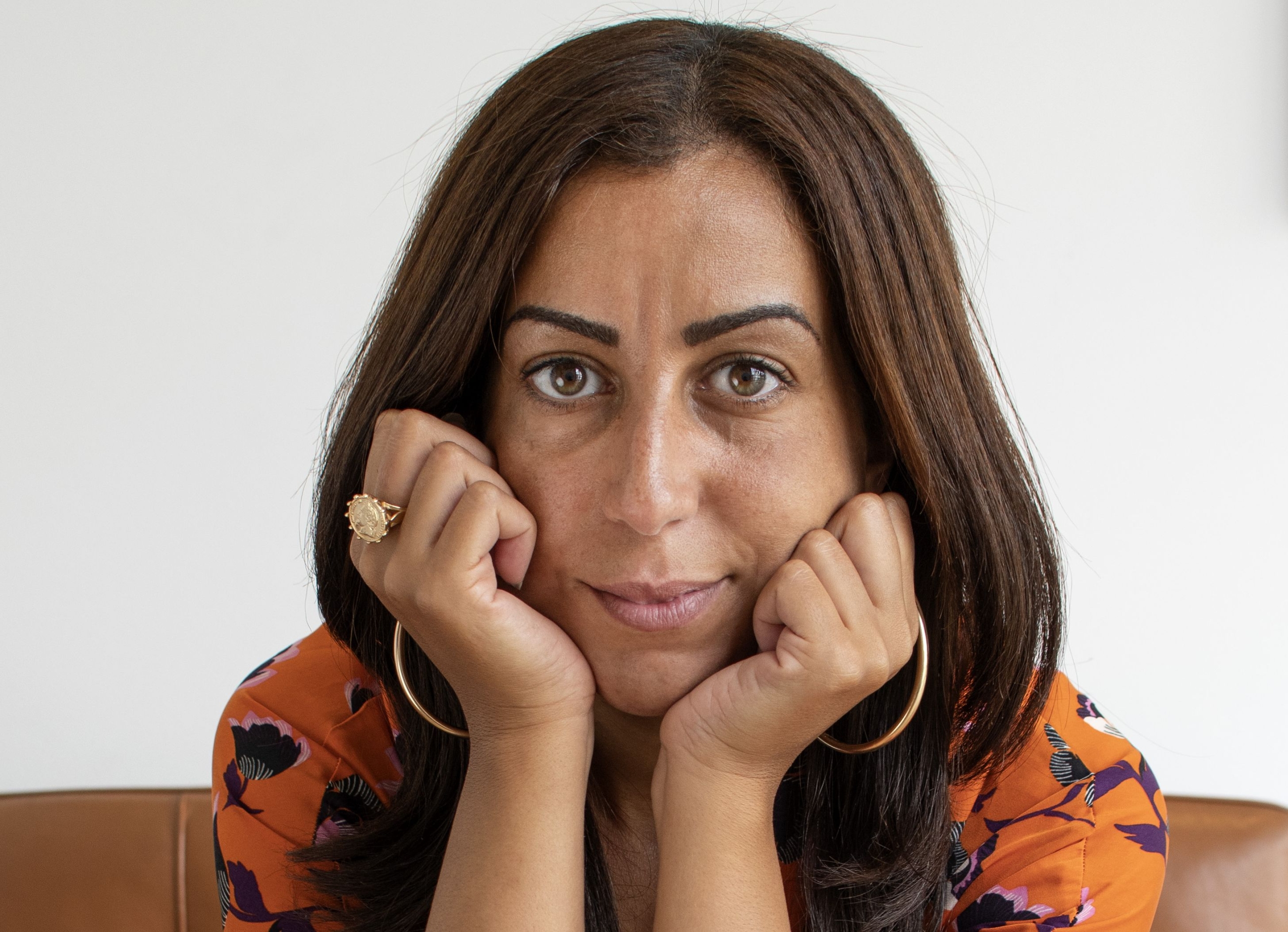
It’s a cloudy, drizzly day in Paris when I meet Faïza Guène in a cafe near the Gare de l’Est train station. She is sitting with a teenager that she is mentoring, telling them that being a writer will not make you rich.
The teen is starry-eyed about the business of being an author and of being in the presence of Guène, whose first book at the age of 19 became a bestseller and was translated into 26 languages.
Guène has been making a living from her writing since her first book, which is a considerable achievement given the precarity of the profession.
Her sixth novel, La Discretion (Discretion) will be published in French at the end of August. Her fourth, Un Homme Ca Ne Pleure Pas (Men Don't Cry ), translated by Sarah Ardizzone, will be released in English in 2021.
Born in France to Algerian parents, Guène grew up on the outskirts of Paris in one of the city's many sprawling council estates, home to families often from former French colonies.
She began writing as a young child and while in secondary school, Guène would write stories and make films in after-school clubs.
At 14, she made her first short film about an adolescent girl imprisoned in the family apartment by an overprotective father and brother. A few years later, in 2002, her mother starred in a documentary short she made about a woman working as a cleaner while trying to raise her three children.
Kiffe Kiffe Demain became so significant you might even say there is a 'before Kiffe Kiffe' and an 'after Kiffe Kiffe' on France’s literary landscape
Around that time, in a writing workshop, she wrote the draft of what would become her first novel. The French teacher running the workshop asked Guène if he could show her manuscript to someone else. That "someone else" happened to be his sister, the late Isabelle Seguin, an editor at Hachette Litterature, which later became part of the Fayard publishing company.
And that novel, Kiffe Kiffe Demain (Just Like Tomorrow), would then be published in 2004, to great acclaim. To date, it has sold 400,000 copies in France alone and it is now even used as reading material in high schools.
The book became so significant you might even say there is a “before Kiffe Kiffe” and an “after Kiffe Kiffe” on France’s literary landscape.
It was also one of the first books to use language punctuated with Arabic-inflected verlan, or back slang, used by many people living in these suburbs. This slang - formerly looked down upon by the literati - has increasingly become part of everyday speech. The expression kif-kif means “more of the same” or “same old, same old”, and is based on the French verb kiffer - a word of Arabic origin, which means "to like".
The novel itself is a coming-of-age story about a 15-year-old girl named Doria who lives with her Moroccan mother in a council estate in the Paris suburbs. Guène’s eagle eye for observation comes through in Doria’s self-deprecating commentary as she describes her daily life and her mother’s slow path to empowerment after being deserted by her husband who left her for a younger woman in hopes she'd bear him a son.
Crossing the divide
Despite her early success, Guène’s path hasn't been easy. Like many French-born children of immigrants from former French colonies, Guène always felt she was viewed as a second-class citizen.
According to a 2015 report, 11 percent of France’s population has a parent from an immigrant background, of which 31 percent come from North Africa.
But the tremendous success of Guène’s novel rocketed her over the périphérique - the ring road around the city of Paris that divides the capital from underprivileged suburbs in the north, and onto prime-time television shows.
Looking back at clips from this time, the confident and sassy teenager took on journalists and literary critics who rarely made the effort to see past their own image of her: a girl with Arab origins from the poor, violent suburbs.
'In retrospect, I realised how difficult and brutal the media coverage was. I was the first of my kind and was treated like a court jester, a freak'
- Faïza Guène
“Luckily I was clever and I wasn’t suffering from a lack of recognition or love, which helped me get through those moments, and not let myself be intimidated,” says Guène.
“If I didn’t have personality, I would have been eaten alive. In retrospect, I realised how difficult and brutal the media coverage was. I was the first of my kind and was treated like a court jester, a freak.”
At the time, France’s elite and very white publishing community was mostly concentrated in Paris’ affluent Left Bank Saint-German-des-Pres.
Guillaume Allary, one of Guène’s editors at the time, who has since founded his own publishing company on Paris’ Right Bank, recalled that in 2004 “there were no voices coming from the banlieues [suburbs]…The book arrived in that heavy silence in a very white, very inward-looking, Parisian literary milieu that was ignorant about a large part of the French population.
“It rattled the literary milieu which misunderstood the book. People saw it as a testimony, rather than a work of fiction by a new author. The first reviews weren’t written by literary critics and had more of a sociological bent to them rather than a literary one.”
Guène says that at the time, she was constantly asked what it was like to live in a violent, disenfranchised suburb. But her experience was not one of violence, instead, it was one of a tightly knit community.
What she found the most violent, she says, was the terrible image this “white, bourgeois society, that I had never encountered before, assigned to me. I had no control over the way I was described, and I didn’t yet understand the true meaning behind the words they used to describe me, or even the way I was portrayed in photographs”.
“She was interviewed as if she were someone coming from a ‘no go zone’,” said Allary. “As if she were an alien who had come to talk to us. At the same time, it was obvious that she was intelligent with a sparkling personality, and the articles were very positive, but from her point of view, they had a zoological aspect to them.”
'I’ve spent a lot of time thinking about my identity. I would have preferred to spend more time thinking about my literature'
- Faïza Guène
In the 2016 documentary Nos Plumes (Our Writers), filmmaker Keira Maameri (whose parents are also Algerian) focused on Guène and other authors and comics artists from the banlieues who are still perceived in France as being “different”.
As if someone from the banlieues, the daughter of a bricklayer, can’t dream of becoming a writer, Guène says in the documentary, as if society were saying, “it’s not something for you”.
As her encounters with the publishing elite and mainstream media multiplied, and even after the publication of five more novels, Guène says she has repeatedly had the same belittling experiences. It’s nearly impossible to rise above the perception that she is of North African origin.
“Every single time I’m brought back onto this terrain. People perceive me through tiny little prisms and I’m expected to talk about the banlieues," Guène says.
"Involuntarily, I’ve spent a lot of time thinking about my identity. I would have preferred to spend more time thinking about my literature.”
Inherited shame
Recently, Guène has started to question the foundations upon which she had built her identity, reading as much as she can about the history of Algeria, its colonisation, independence and immigrants in France.
“Today, I’m an Algerian who was born and lives in France…I don’t define myself at all the way I did when I was 20,” says Guène. “I used to think I was French, and I would have liked that, it was a nice idea... [But] when you’re [a] legitimate [citizen] you don’t have to keep justifying who you are and how you feel about your origins and being French.”
Guène’s father, who was born in 1934 and came to France to work in a mine and later as a bricklayer, died in 2013. His death was an important moment for her because it made her think about his journey through history, and she “realised the importance of passing down an identity”.
“My father arrived in colonial France. He was neither Algerian nor French,” Guène says. “This isn’t something trivial, you build yourself on fragments that you piece together…Our parents, who were colonised and humiliated, raised us in a country where they lacked the unwritten social codes. They told us ‘be quiet, keep your head down’ because they wanted to protect us.”
'We tell ourselves; they went through all that, and we are still treated the same way. The question now is how to deal with the anger'
- Faïza Guène
The difference with her parents’ generation and their children’s, says Guène, is that they accepted not being considered French because they hadn’t grown up in France. “But I was told that I was French, a child of the republic. It was an unkept promise.”
Still, she admits that shame can be inherited.
“We tell ourselves, they went through all that and we are still treated the same way. The question now is how to deal with the anger [we feel].”
Anger is a central theme for Guène, who examines it in her forthcoming book, La Discretion, and fervently hopes for her young daughter’s sake that their generation can overcome it.
She has spent time searching for answers to this anger, and in the process says she found author James Baldwin’s writings closest to her heart.
She quotes a passage from Baldwin’s novel The Fire Next Time in the prologue of La Discretion, which she feels perfectly describes her parents’ generation as well as hers, and is a chilling description of events happening today in the US:
"It demands great spiritual resilience not to hate the hater whose foot is on your neck, and an even greater miracle of perception and charity not to teach your child to hate."
Missed chances
The situation in France hasn’t always felt this bleak to Guène. In her 2018 novel, Millenium Blues, she explores a period of time when it seemed like France was on its way to accepting its diversity.
It was a moment that was crystallised for the character Zouzou (a young woman whose mother is French and her father a Kabyle from Algeria) and for many French when the country won the World Cup football match in 1998.
Zouzou embodies a generation, one that had an unlimited phone plan called “Millenium" and who lived the hopeful dream of a successfully integrated society, one that was “black, blanc, beur” (black, white or Arab), a term coined when the multicultural team of players united as the French national football team.
But since 1998, this hope has diminished for many.
In an article published in the newspaper Liberation in February 2009, sociologist Michel Wievorka and socialist MP George Pau-Langevin wrote: “Inscribed in the French mental map are the powerful factors of the otherness of skin colour, a poorly digested colonial heritage, and a culturalist approach... the debate about nationality questioned the right of acquiring nationality by birth, tensions over Islam, with the rejection of the veil and mosques; and the advocacy of a selective immigration policy, which sent an image to French with an immigrant background of being 'unwelcome' citizens.”
Yet there are still those who hang on to glimmers of hope. In the 2019 film Les Miserables, director Ladj Ly (whose parents are immigrants from Mali) chose to open his first feature film about police brutality in a Paris suburb,with scenes of joy on the Champs Elysees during the 2018 World Cup football match.
When France wins the final against Croatia, the camera pans across a multi-ethnic crowd, all cheering for their country. Ly won the 2019 Cannes Festival jury prize for Les Miserables and the film went on to be nominated for best international feature film.
Guène finds the images from these matches, 20 years apart, enlightening. Ladj Ly’s scene on the Champs Elysees “means so much more than just the match; [it] represents an ideal of what the spirit of unity should be,” she says.
A film like Les Miserables is very rare, says Guène. “It’s important to give young people the tools to think about our society and give them other archetypes than what we usually see.
“[It] alludes to 1998, when the socio-political context was very different. It’s as if, in the 2018 image, you realised that the victory, the joy, and elation weren’t enough to make you believe [in unity].
“But in ’98 we really did believe. This was before 9/11, the Bataclan [terrorist attacks], and other events. It was an enchanted moment in time.”
"Just Like Tomorrow" (2006), "Dreams from the Endz" (2008), and "Bar Balto" (2012) by Faïza Guène, are available from Penguin, translated by Sarah Ardizzone
This article is available in French on Middle East Eye French edition.
Middle East Eye propose une couverture et une analyse indépendantes et incomparables du Moyen-Orient, de l’Afrique du Nord et d’autres régions du monde. Pour en savoir plus sur la reprise de ce contenu et les frais qui s’appliquent, veuillez remplir ce formulaire [en anglais]. Pour en savoir plus sur MEE, cliquez ici [en anglais].


